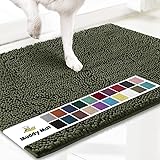Authorities in the United Kingdom have issued a warning because of a rise in the number of non-compliant food and drink products being imported from countries including the United States.
The problem was identified by the Food Standards Agency (FSA) through import surveillance sampling and the occurrence of incidents.
Local authorities have been asked to raise the issue with importers of products from the United States, as they may not be aware of differences in the laws between the two countries.
According to European regulation retained in the UK after Brexit, all food additives in products must be authorized for use in the relevant food category.
Non-compliance has been mainly related to using food additives in products they are not authorized for use in, or their presence at levels that exceed the permitted maximum limit, as well as labeling deficiencies.
Problem examples
Examples include the color Erythrosine, shown on products from the United States as Red 3, which is only permitted for use in cocktail cherries, being found in breakfast cereals, baking products and confectionery.
Foods containing the Southampton colors Sunset yellow FCF; quinoline yellow; carmoisine; Allura Red; tartrazine; and ponceau 4R above authorized levels or lacking the warning: “May have an adverse effect on activity and attention in children.”
Calcium disodium EDTA and Erythorbic acid are permitted additives for some foods but they are not allowed in drinks while some beverages have been found to contain Brominated Vegetable oil (BVO).
Drinks labeled as having BVO, EDTA or Erythorbic acid, and products other than cocktail cherries with Erythrosine or Red 3 should not be imported to the UK.
Food businesses importing and selling these products are responsible for ensuring anything they place on the market meets the legal requirements. Importers were advised to only source products that are compliant with food additives legislation.
Adam Hardgrave, FSA head of food additives, flavorings and food contact materials, said: “We have provided port health authorities with additional guidance on non-approved food additives and incorrect labels found in imported food and drink. It is food business operators’ responsibility to ensure imported products are complaint with the food additive regulation and if they are not, they will be removed from the market.”
(To sign up for a free subscription to Food Safety News, click here.)
Note: This article have been indexed to our site. We do not claim legitimacy, ownership or copyright of any of the content above. To see the article at original source Click Here












